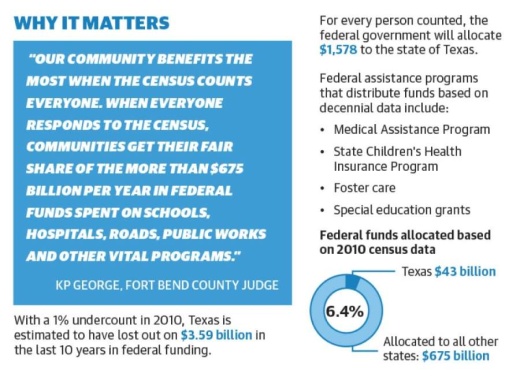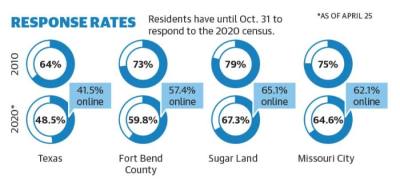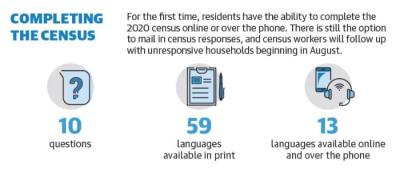“We are one of the fastest-growing counties in the country,” Fort Bend County Judge KP George said in an email. “We need to ensure we accurately count as many residents as possible to ensure we receive the resources necessary to serve our Fort Bend County residents.”
The census is a constitutionally mandated survey taken every 10 years to count people where they live as of April 1 of that year.
The distributed census is confidential and anonymous, said Douglas Loveday, senior media specialist for the U.S. Census Bureau.
Population counts from the census determine the number of representatives a state will have in the U.S. House of Representatives. With an accurate count in 2020, Texas could gain at least three seats in the House, jumping from 36 to 39. Additionally, state district lines are expected to be redrawn in 2021 using census data.
The results of the census also inform how hundreds of billions of dollars of federal funding are allocated to the states for programs, such as Medicaid, the early childhood education program Head Start, block grants for community mental health services and the Supplemental Nutrition Assistance Program. Texas received $43 billion in federal funding based on data collected in the 2010 census.
Fort Bend County, Sugar Land and Missouri City have all established complete count committees to educate residents about the census and mobilize residents to respond.
In Missouri City, Chalisa Dixon, the city’s complete count chair, said funds will benefit many programs, such as the Community Development Block Grant program, an affordable housing initiative. She said funding also affects the city’s emergency services, infrastructure and schools.
“If you are getting at least 80% of your population to respond, then, you’re getting a good snapshot of the city,” Dixon said.
Terri Wang, a member of Sugar Land’s Complete Count Committee, said census results affect funding for hospitals, schools and roads.
“The purpose of the committee is to design and implement a census awareness campaign targeted to the demographically diverse communities across the city,” Wang said in an email.
Although the deadline to self-respond was originally at the end of July, the deadline has been pushed back to Oct. 31 because of the coronavirus.
Counts will be delivered to the president by April 30, 2021, and redistricting data will be delivered to states no later than July 31, 2021.
Emma Freer, Ali Linan, Jen Para, Kelly Schafler and Danica Smithwick contributed to this report.








